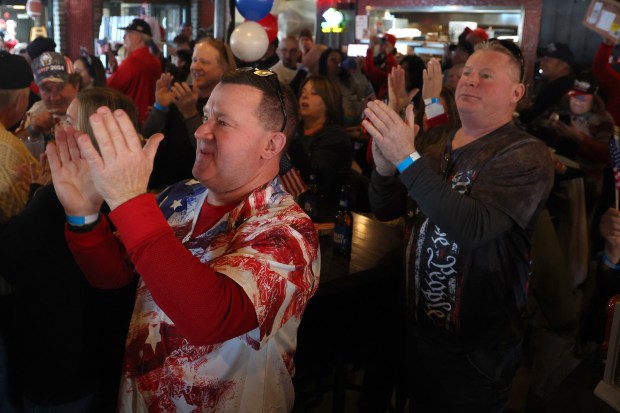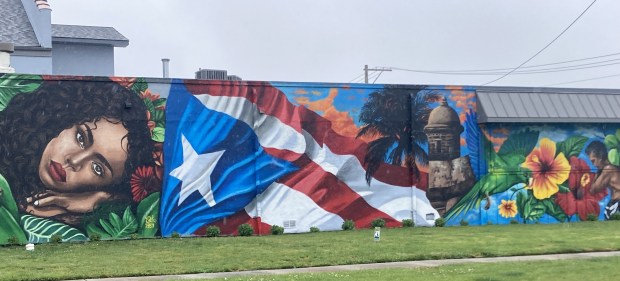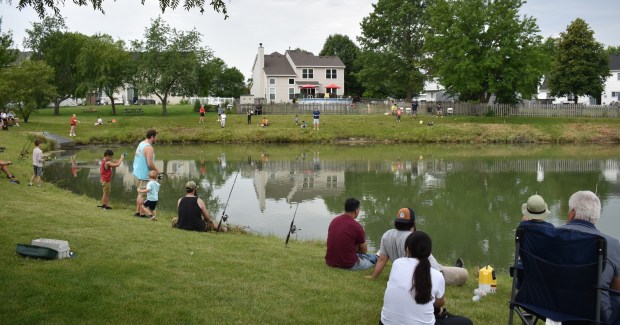On his first day back in office, Republican President Donald Trump pardoned or commuted the sentences of 1,500 defendants charged in the Jan. 6, 2021, attack on the U.S. Capitol, making good on a campaign promise that will affect dozens of Illinoisans.
The complete list of people benefiting from Trump’s clemency was not immediately released, but over 50 people from Illinois have been accused of storming the building as Congress was inside certifying the 2020 election results. The scope of the president’s pardons suggests that virtually all those implicated in the riot that left more than 100 police officers injured will see those charges wiped clean, following one of the largest criminal probes in American history.
Donald Trump has begun signing slew of executive orders on Day 1
Dave Leyden, the twin brother of Jan. 6 rioter Daniel Leyden, told the Tribune in a text message Monday evening that he was driving from Chicago to the downstate Thomson federal prison in anticipation of his brother’s release, though he still awaited official communication on the clemency process.
Daniel Leyden has been serving a three-year sentence after pleading guilty to assaulting law enforcement officers at the Capitol barricades on Jan. 6, 2021. Another Leyden brother, Joseph, also pleaded guilty to that charge and completed a six-month prison sentence.
Dave Leyden spent his Monday morning with Joseph celebrating the 47th president’s inauguration at a pro-Trump watch party inside a Southwest Side pizza shop before anxiously watching the TV for updates on the Jan. 6 defendants. Once Trump signed off on the pardons, Dave Leyden texted that he headed toward his other brother’s prison to “be ready first thing in the morning to bring him” home.
“THE J6rs and their families (had) ENOUGH release them all now,” Dave Leyden wrote.
Four years ago, Mathew Capsel also joined the Jan. 6 attack on the U.S. Capitol. On Monday, the 32-year-old watched Trump’s second inauguration from the much calmer setting of his downstate home in Marseilles, Illinois, and processed the news that Trump was pardoning him.
“I’m not going down to D.C.,” Capsel, who completed his 18-month prison sentence in February 2024, quipped when asked where he was watching Trump speak. He paused before adding that “I have a lot of regrets for what happened on that day, for sure.”
Later that evening, Capsel said his lawyer informed him that he was granted a pardon.
Convicted of clashing with National Guard troops outside the U.S. Capitol, he was identified by a former neighbor who tipped federal agents to his social media posts and videos showing his participation in the attack, according to court documents.
At the same time, Capsel maintained to the Tribune: “It was not an insurrection. .. It was being swept up in the moment. Like, the energy in the air, everything. It just — you kind of knew what was gonna happen.”
Attorney Steve Greenberg, who represents Jan. 6 defendant Emil Kozeluh of Palos Heights, said he had not received notice yet on the dismissal of his client’s case as of Monday evening but that “he should have never gotten charged in the first place.”
Trump’s move came as no surprise after months of him pledging clemency for the rioters who interrupted the peaceful transfer of power after his loss to Democrat Joe Biden in the 2020 election. The fallout from the events of Jan. 6, 2021, ultimately swept Trump himself up in a criminal case that has since been dismissed and became a rallying cause for Democrats who say he and his supporters organized a dangerous coup to defy the election results.
As the president returned Monday to the White House, signing the pardons along with a host of sweeping executive orders, he again referred to the rioters as “hostages.”
“These people have been destroyed. What they’ve done to these people is outrageous. There’s rarely been anything like it in history, in the history of our country,” Trump told reporters in the Oval Office. “There’s never been anything like this. And you know it’s almost 100% — think of this — almost 100% of the people are convicted. 100%. It’s Washington, D.C.”
The Tribune’s Rick Pearson contributed.





